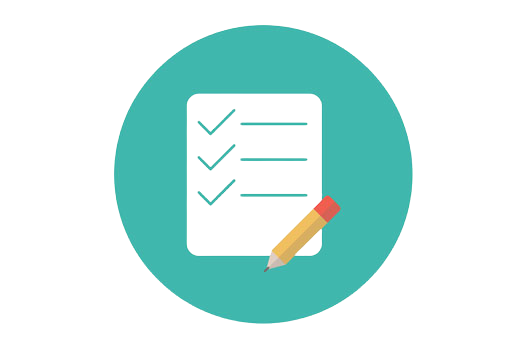Your Shopping Cart

This DevOps certification course is thoroughly planned to help you become a certified practitioner through best practices.
The DevOps training course will help you master various software development, operations, continuous integration, delivery, automated build, test, and deployment. This Certification will teach you DevOps tools like Git, Puppet, Jenkins, SVN, Maven, Docker, Ansible, Nagios, and more. This DevOps certification course is developed to help you become a certified practitioner through best practices in Continuous Development, Configuration Management, and Continuous Integration, and finally, Continuous Monitoring of software throughout its development life cycle.
DevOps Certification Training Program will prepare you for a career in DevOps, which teaches you the principles of continuous development and deployment, configuration management automation, inter-team collaboration and IT service agility using DevOps tools such as Git Docker, Jenkins and more.
These DevOps certification training can be taken up by: IT Professionals Software Testers System Admins Solution Architects Security Engineers Application Developers Integration Specialists
Most institutions are now looking for a team with different skills, one of the essential benefits of learning DevOps is that you will become more valuable to a company. While understanding DevOps, you will learn to use different tools and techniques for faster and practical testing, development, and app or software deployment. As most of the companies are now automating the process, they are also encountering issues related to automating. Execution of DevOps ensures maximum security in production. They work under governance and ethics, and it is enormous accountability.
The prerequisites for this course include: Any Scripting Language Knowledge Linux Fundamentals Python Scripting.
A DevOps professional should have a technical background, and he must hold a degree in computer science, engineering, or other related fields. Basic programming knowledge and a certification course in DevOps are essential for beginners. The candidate should learn about the DevOps tools and understand cloud platforms like AWS and Microsoft Azure for the intermediate level.
As a DevOps engineer, you will introduce processes, tools, and methodologies to balance needs throughout the software development life cycle, from coding and deployment to maintenance and updates.
As companies are digitized, the need for DevOps has increased at a tremendous rate. The future of IT companies is now dependent on the DevOps approach, which is the most demanding job. The market has grown from 40–45 per cent within the last five years, increasing the DevOps demand.
DevOps is related to software development. The Dev (development team) combines with the Ops (operations team) to smoothen the software development process. The DevOps experts work with the IT department to facilitate effective coordination among development, testing, and operation functions in an institution.
This section introduces you to the DevOps environment.
In this module, you will learn Source Control Management and understand the functionalities of Git.
In this, you will learn about the different actions performed through Git and be introduced to Jenkins and Maven.
Learn how to perform Continuous Integration by building applications with the help of Maven and creating deployment pipelines using Jenkins.
Understand how to manage and configure your infrastructure using Ansible Ad-Hoc commands, Playbooks, and Roles.
This part introduces learners to the core concepts and technology behind Docker. Learn in-depth about containers and various operations performed on them.
Discover how to use the Docker Hub registry, deploy a multi-tier application using Docker Compose, and create a swarm cluster.
This module will learn about Container Orchestration and essential container management using Kubernetes.
Learn and deploy different service discovery mechanisms, operate Volumes for persistent storage and deploy Stateful Sets for stateful applications.
This section will learn to collect, monitor, and visualize data using Prometheus and Grafana.
Know how to provision and manage infrastructure on a Cloud Platform (AWS) using Terraform Configuration Files.
Use Terraform State commands to manage the current state of your infrastructure. Deploy an entirely usable and working infrastructure using Terraform.
Introduction to selenium and learning to automate test cases for testing web elements, X-Path, TestNG and integrate Selenium with Jenkins.
Know how to continuously monitor your tasks using various plugins and implementing Nagios Commands.
Understand various cloud services and service providers and get a brief idea of implementing DevOps using AWS.
You will learn a brief Security and EC2 Compute service works in AWS Cloud.
Edtia Support Team is for a lifetime and will be available 24/7 to help with your queries during and after the completion of the course.
Benefits of Learning DevOps: Shorten Production Cycles Increase Deployment Success Rates Improved Collaboration and Communication Increased Efficiency Through Automation Increase Product Quality Increase Your Salary
Prior knowledge of programming languages is needed to learn DevOps. Some introductory knowledge of Linux, python, shell scripting will work.
The average DevOps engineer salary in the US is $96,225 per annum.
To better understand the course, one must learn as per the curriculum.
A DevOps team's primary roles and responsibilities are to communicate effectively, improve visibility across the CI/CD pipeline, and constantly learn new things.
Coding and scripting are two necessary skillsets that DevOps engineers should possess. Python, Ruby, Python, Java, Javascript, PHP, Bash, Shell and Node, Js are the most recommended programming/scripting languages.
DevOps helps reduce the time for development cycles and ensures a faster rate of innovation. If the operations and development teams are in different silos, it will be challenging to identify whether the application is ready for operation.
DevOps is full of challenges and learning, and it needs more skills than just the technical ones, a good understanding of complex technical problems and business needs simultaneously. With this training programme, you can quickly master DevOps technology.


Every certification training session is followed by a quiz to assess your course learning.

The Mock Tests Are Arranged To Help You Prepare For The Certification Examination.

A lifetime access to LMS is provided where presentations, quizzes, installation guides & class recordings are available.

A 24x7 online support team is available to resolve all your technical queries, through a ticket-based tracking system.

For our learners, we have a community forum that further facilitates learning through peer interaction and knowledge sharing.

Successfully complete your final course project and Edtia will provide you with a completion certification.
You will receive Edtia DevOps Training certification on completing live online instructor-led classes. After completing the course module, you will receive the certificate.
A DevOps Training certificate is a certification that verifies that the holder has the knowledge and skills required to work with Azure technology.
By enrolling in the DevOps Training Certificate course and completing the module, you can get Edtia Azure training certification.
You will be given access to the course material for a lifetime once you have enrolled on the course.
